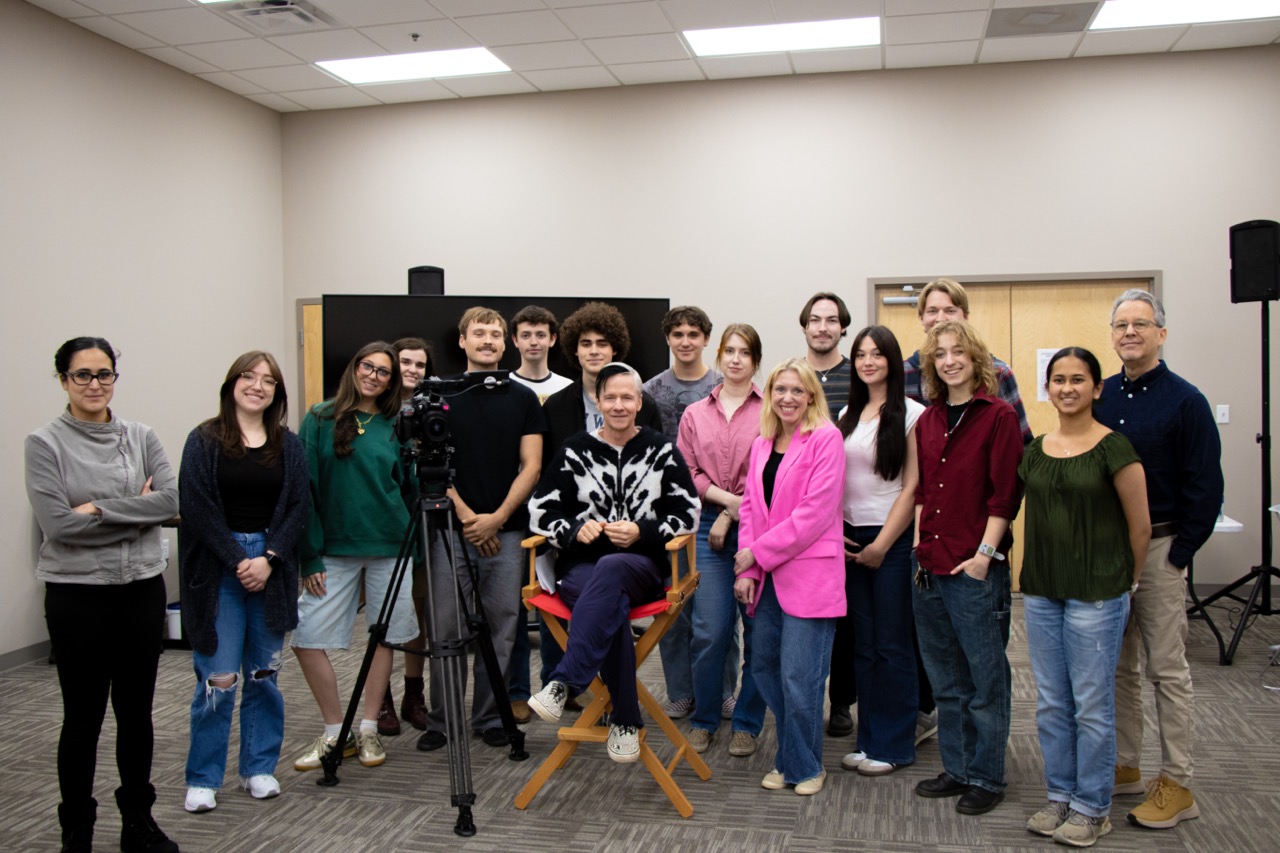
On Friday, March 28th, John Cameron Mitchell visited the MFA Film program to lead a 4-hour intensive Directing Workshop with students. The workshop, hosted at MFA Film’s Studio Production Learning Center, was part of a day-long Artist Visit with UGA students in Theatre and MFA Film.
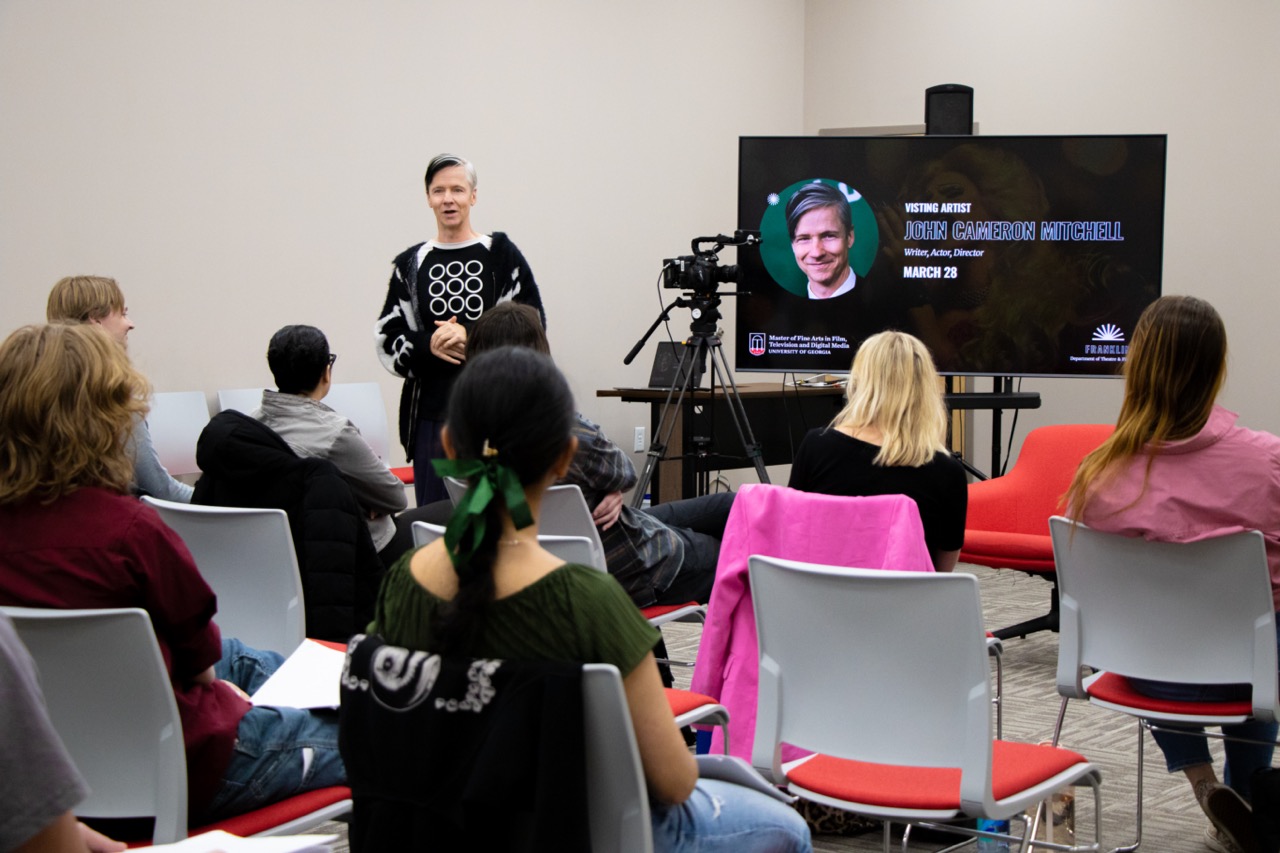
A writer, actor, and director, Mitchell is best-known for his cult classic rock musical “Hedwig and the Angry Inch” (2001), based on the stage musical of the same name. Mitchell was awarded Best Director for the film at the 2001 Sundance Film Festival. Mitchell began his career with stage roles on Broadway, later adding television acting work, as well as writing, directing, and executive producing following “Hedwig and the Angry Inch.”
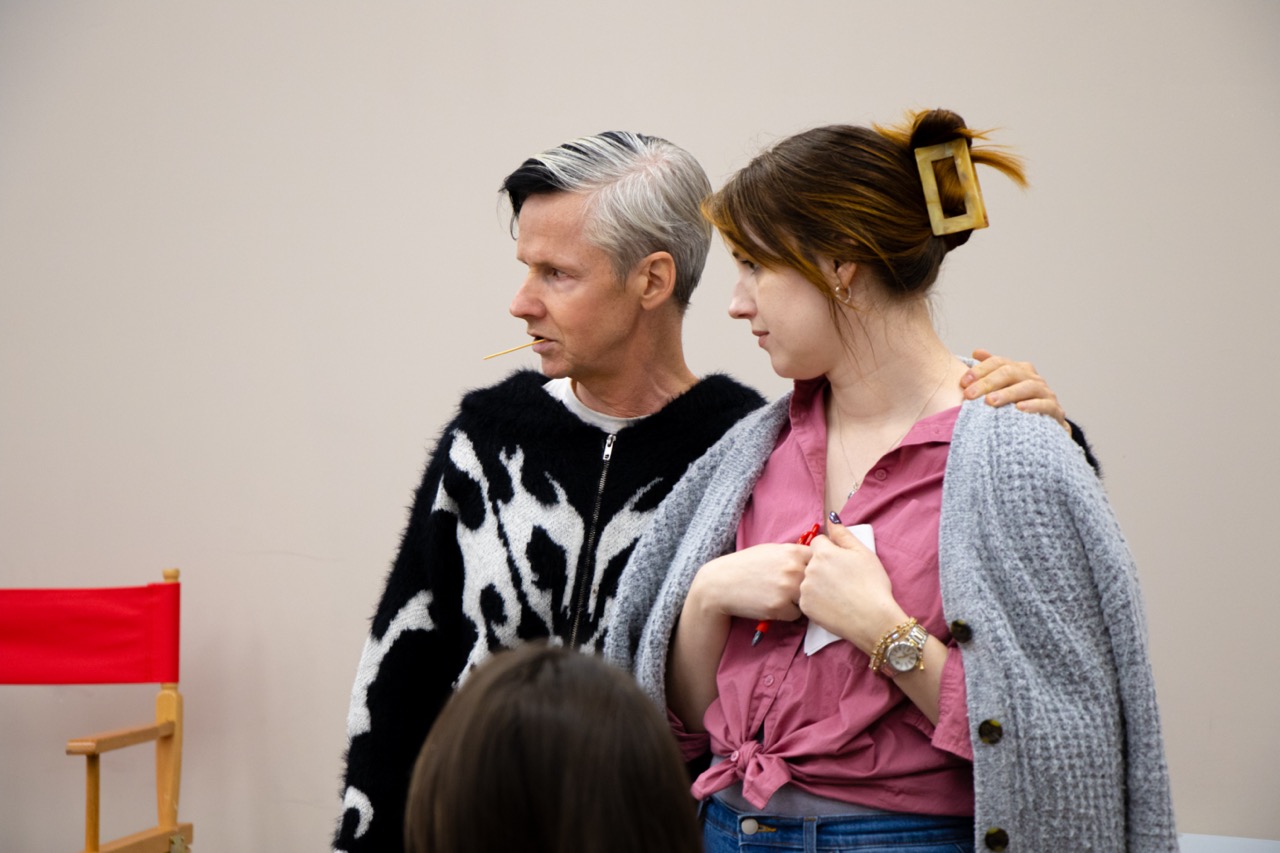
Mitchell’s workshop with MFA Film and Theatre students focused on honing students’ techniques as directors, and strengthening how to approach and motivate truthful performances, while advising from his experience on both sides of the camera — as both director and actor.
After opening the workshop by speaking on his experiences in the industry and leading group discussion, Mitchell then led directing exercises with scenes that MFA Film students brought in to workshop in collaboration with student actors from the Theatre department.

Four different scenes were workshopped and filmed, each scene helmed by a writer-director and advised by Mitchell:
- FROM HEAVEN by Clare Methe: A young woman confronts her grandmother over the true reason behind the name she chose for her mother.
- FANTASY by Christopher Pendry: A popular straight actor opens up to his makeup team about how comfortable he is playing a gay role… he is; for real; he’s not bothered by it at all.
- ESOTERIKA by Eli Hutchinson: An ace employee at a tech company is accused by his boss of letting a critical data leak happen.
- SUMMER IN THE NORTH by Aida Elkashef: A group of aged ex-revolutionaries reminisces, while suffering a divide with the younger generation.
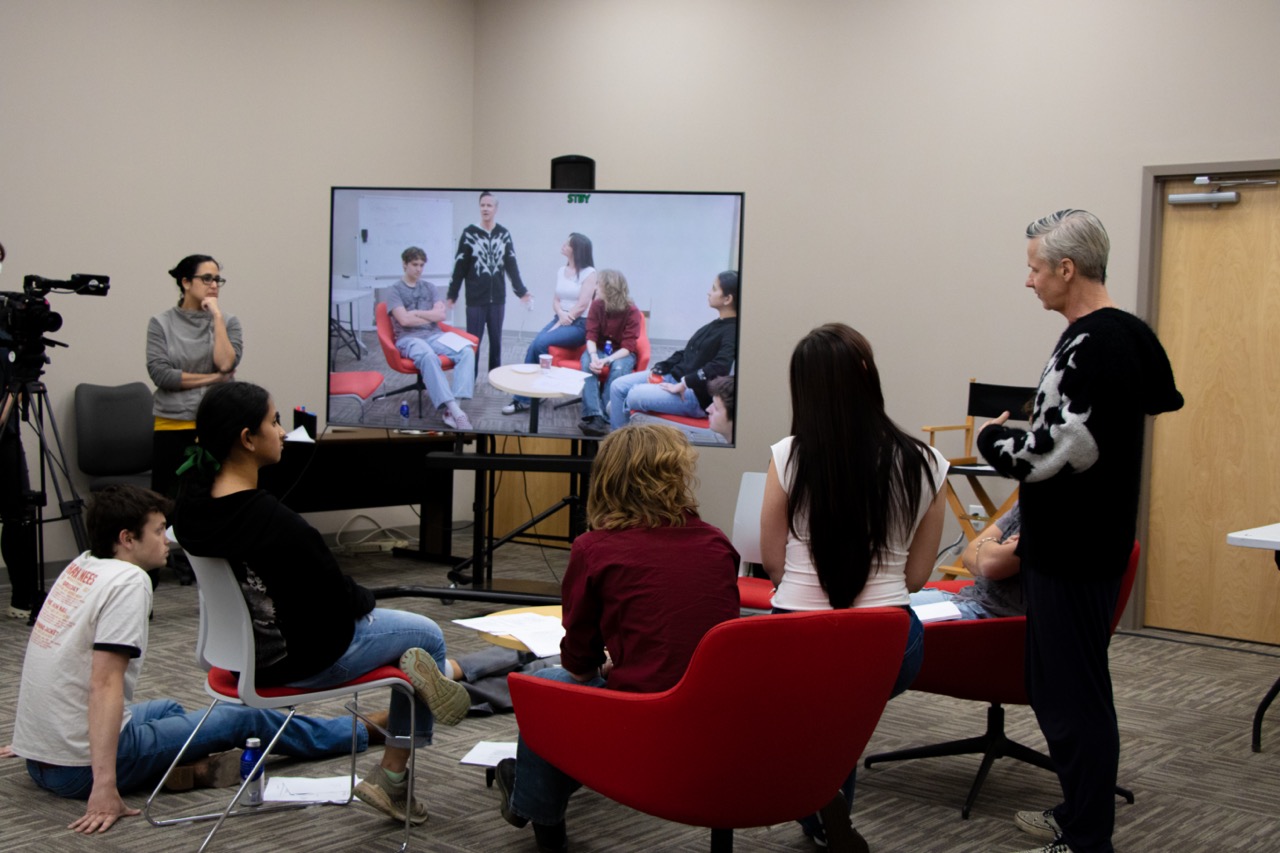
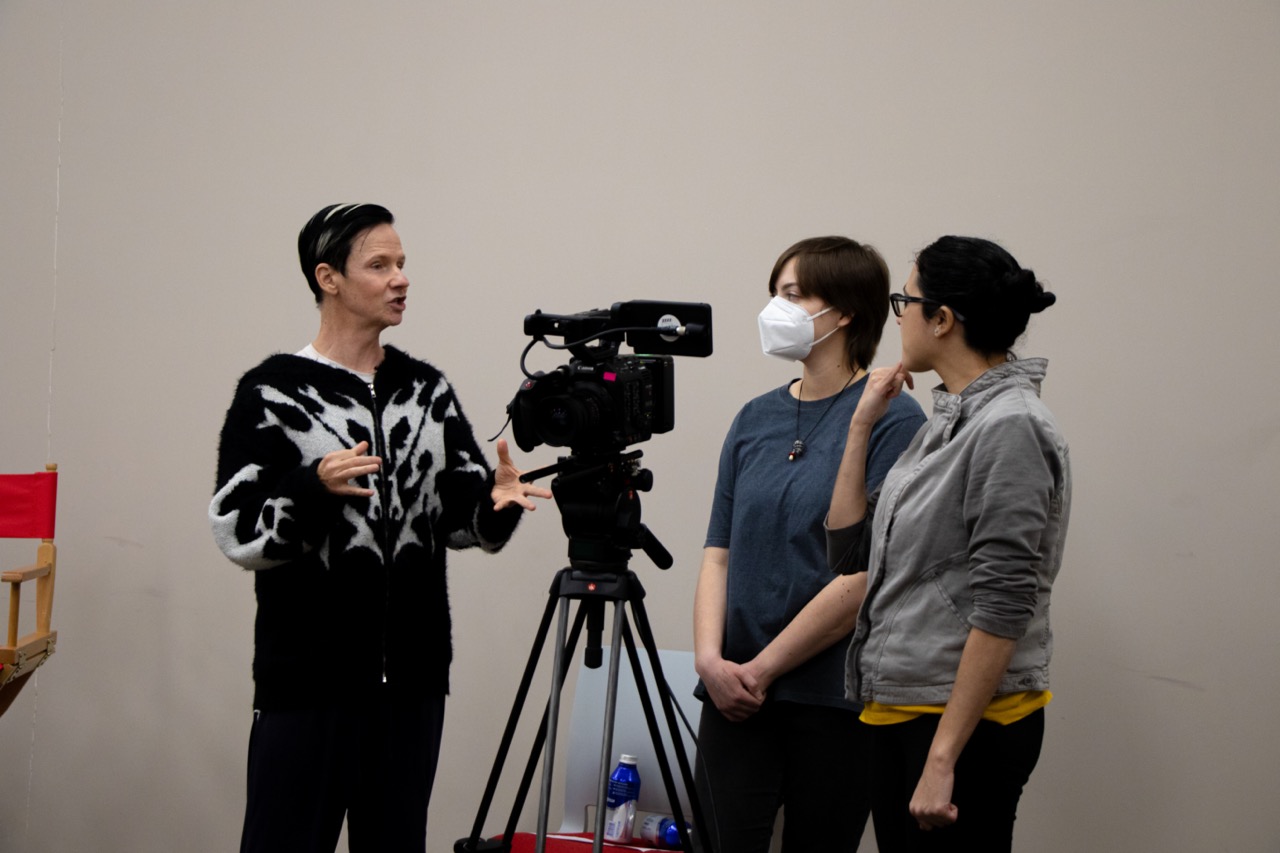
Students learned best communication practices between directors and actors, how directors can give actors goals to motivate their characters’ actions, and how to translate emotion into effective performance choices.
